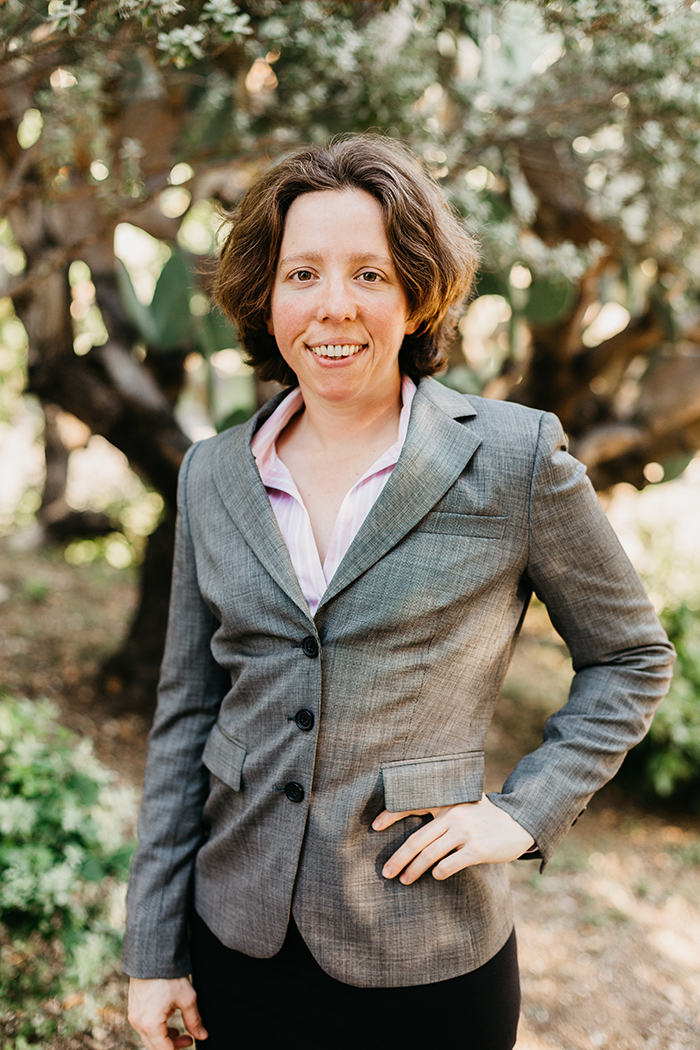Marjorie Drake
C.L.E. Moore Instructor & NSF Postdoctoral Fellow 2022-2025
Research: Analysis, Whitney-type Extension Problems, Convexity
Website: https://www.marjoriekdrake.com/

Marjie enjoyed many subjects in school but her first two-column proofs in geometry class whetted her appetite for theoretical mathematics. She recalls being stuck—unable to prove a theorem, she asked her mother for help, who asked Marjie to explain the problem back to her. In walking her mother through the question, and explaining each step, Marjie found that she was also teaching herself how to solve it. “My Mom would never call herself a mathematician—indeed she hadn’t taken a course past algebra—but she helped me discover the fun in unraveling a problem. She fostered in my brothers and me a curiosity about the world and a deep appreciation of what we could learn and do through focused effort. She also instilled in us a confidence that nothing was out of reach.”
Attending a competitive high school, Marjie became aware of an implicit hierarchy of math students and began to think that she couldn’t contribute as a mathematician because she wasn’t the best. Intent on serving her community, she sought a commission as a Naval Officer by going to the Naval Academy. While studying mathematics there, she found a mentor, Professor Alexis Alevras, who helped her understand that if she liked doing math, she could do math. There is no ordering on skill (no best), and anyone can contribute. Math requires creativity, patience, and an open mind. After four years at sea and two years ashore in the Navy, Marjie returned to challenges she found more compelling and fun: She started graduate studies in math at the University of Texas at Austin, where she was surrounded by encouraging women and allies. “My advisor, Professor Arie Israel, gave me the space to find my own voice mathematically, encouraged me to take risks, and supported me.”
Marjie works on Whitney Problems. The study of Whitney extension and trace problems has catalyzed new techniques in geometric function theory and classical analysis since H. Whitney first considered questions of extension in 1934. These theoretical questions are motivated by practical questions of interpolation of data. Suppose an experimenter collects data at each point of a finite set, defining a function from that set to the real numbers. In elementary science courses, students learn to interpolate this data by, for instance, “connecting the dots.” But what are they really doing? They're defining a continuous interpolant of minimal total length. How can we tell if given data lies on a function in a particular function space? Can we construct an almost optimal interpolant of this data? Can we compute an almost optimal interpolant efficiently? If we expect our data to contain some error or lie near a function in a particular space, can we approximately interpolate this data? Not only are these questions fascinating, the analysis tools required to solve them are fun and powerful. For example, clever decompositions of the domain of a function teach us about the local and global properties of functions in a particular function space.
“Reflecting on my experiences in the Navy and in Math, I see how the narrative of our culture—who leads as a Naval Officer or who does deep, interesting math—leaves out lots of people. Fostering an inclusive environment is a priority of mine as a mathematician and mentor. Women have made important contributions to mathematics and will continue to do so.” Marjie also advocates for mental health and balance; she is a cyclist and admits to occasionally solving math problems while out walking her dog.